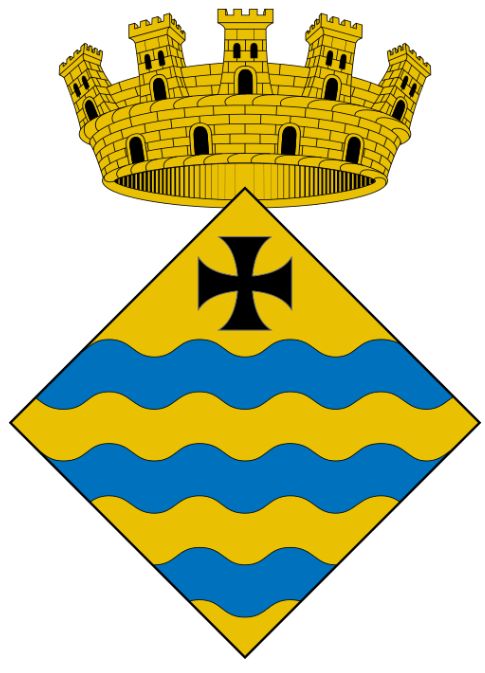Guissona: Difference between revisions
Knorrepoes (talk | contribs) No edit summary |
Knorrepoes (talk | contribs) m (Text replace - "[[Literature" to "{{media}} [[Literature") |
||
| Line 19: | Line 19: | ||
Guissona is considered "the spring of La Segarra", a mostly dry area. The three wavy blue bars mean the main local fountains (formerly they were four), and the golden colour of the arms is related to the dryness of the ground. The town (the ancient Ieso during the Roman times) was reconquered from the Moors by the bishops of Urgell in 1024, and ever since the Church has had a remarkable importance; the black cross in the arms refers to St. Mary, the patron saint, and also to the collegiate church of Santa Maria de Guissona. | Guissona is considered "the spring of La Segarra", a mostly dry area. The three wavy blue bars mean the main local fountains (formerly they were four), and the golden colour of the arms is related to the dryness of the ground. The town (the ancient Ieso during the Roman times) was reconquered from the Moors by the bishops of Urgell in 1024, and ever since the Church has had a remarkable importance; the black cross in the arms refers to St. Mary, the patron saint, and also to the collegiate church of Santa Maria de Guissona. | ||
{{media}} | |||
[[Literature]] : Image taken from http://escuts.wikispaces.com | [[Literature]] : Image taken from http://escuts.wikispaces.com | ||
Revision as of 22:21, 8 July 2014
| Heraldry of the World Civic heraldry of Spain - Heraldica Española |
GUISSONA
Region : Catalonia
Province : Lleida
Official blazon
Escut caironat: d'or, tres faixes ondades abaixades d'atzur acompanyades al cap d'una creu grega patent de sable. Per timbre una corona mural de vila.
Origin/meaning
The arms were granted on June 1, 1983.
Guissona is considered "the spring of La Segarra", a mostly dry area. The three wavy blue bars mean the main local fountains (formerly they were four), and the golden colour of the arms is related to the dryness of the ground. The town (the ancient Ieso during the Roman times) was reconquered from the Moors by the bishops of Urgell in 1024, and ever since the Church has had a remarkable importance; the black cross in the arms refers to St. Mary, the patron saint, and also to the collegiate church of Santa Maria de Guissona.
Contact and Support
Partners:
Your logo here ?
Contact us
© since 1995, Heraldry of the World, Ralf Hartemink 
Index of the site
Literature : Image taken from http://escuts.wikispaces.com











